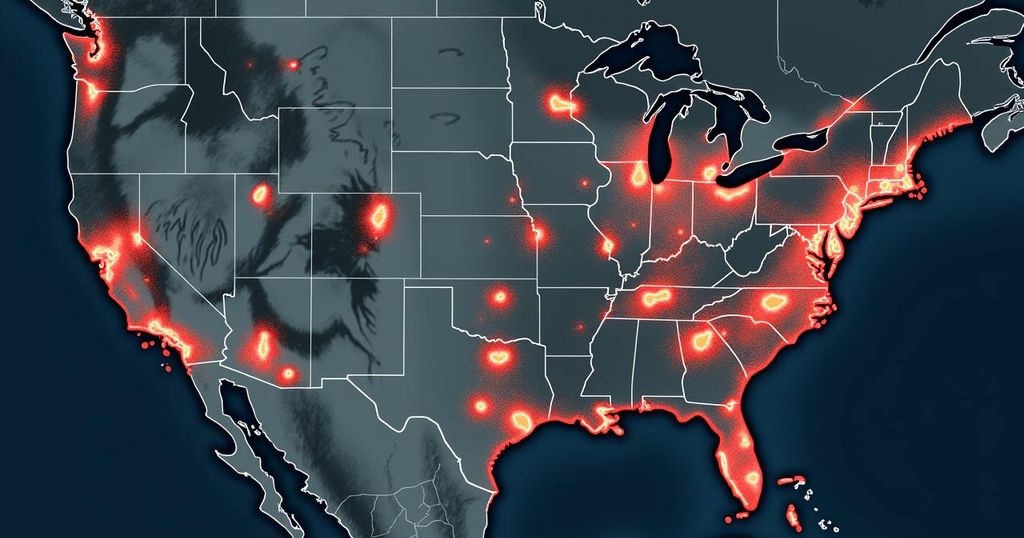US Faces Potential Double Threat from New Storm Systems Following Hurricane Helene
The United States is under potential threat from new storms after the damaging effects of Hurricane Helene, with meteorologists observing two significant systems in the Atlantic and Caribbean. One has a high probability of developing into a tropical cyclone, while another poses a medium risk of becoming a tropical depression. Cleanup from Hurricane Helene is still ongoing, and residents are urged to stay alert for future updates as these systems progress.
The United States is facing the potential threat of further storms as meteorologists monitor two significant weather systems over the Atlantic Ocean. Following the devastating impacts of Hurricane Helene, which left over one million Americans without power and resulted in more than 100 fatalities, experts have flagged an alarming situation. One system in the eastern tropical Atlantic has an 80 percent chance of developing into a tropical cyclone within a week, while another disturbance in the western Caribbean has a medium (50 percent) chance of becoming a tropical depression, which warrants careful observation by the Gulf Coast. The National Hurricane Center (NHC) has specifically noted Tropical Depression Twelve, which could potentially be renamed Hurricane Kirk if it strengthens. While the precise timing and location of any potential landfall remain uncertain, the U.S. Gulf Coast and relevant regions are urged to stay vigilant as the NHC continues to monitor these systems. As residents of Florida and other affected states remain on edge due to the recent catastrophes from Hurricane Helene, the NHC is committed to keeping the public informed about any developments in these threatening weather patterns. Cleanup efforts are ongoing, with communities recovering from the widespread destruction caused by Helene, a powerful system classified as a Category 4 hurricane with maximum winds ranging from 131 to 155 mph. The NHC maintains that no immediate warnings have been issued as it closely observes these developing weather systems, whilst encouraging citizens in potentially impacted areas to stay informed and prepared for any future developments.
The threats posed by hurricanes and tropical storms are of significant concern, particularly as the Atlantic hurricane season progresses. In recent weeks, Hurricane Helene has already wreaked havoc across multiple states, including Florida, Georgia, and the Carolinas. The devastation included severe infrastructure damage and extensive loss of life, triggering widespread recovery efforts. The meteorological warning regarding two weather systems in the Atlantic comes during the aftermath of Hurricane Helene, emphasizing the need for vigilance among residents and authorities in hurricane-prone regions. The National Hurricane Center plays a critical role in forecasting and providing updates on storm developments, helping to mitigate the impact of such natural disasters on communities across the United States.
In conclusion, the United States must remain vigilant in light of the recently formed tropical disturbances in the Atlantic, particularly as many regions are still recovering from the catastrophic effects of Hurricane Helene. The National Hurricane Center continues to provide updates on the evolving weather systems with an emphasis on preparedness among the populace. As the agency monitors various systems that might pose a threat, it is crucial for citizens to stay informed and ready for any potential impacts while grappling with the aftermath of ongoing recovery efforts.
Original Source: www.newsweek.com




Post Comment